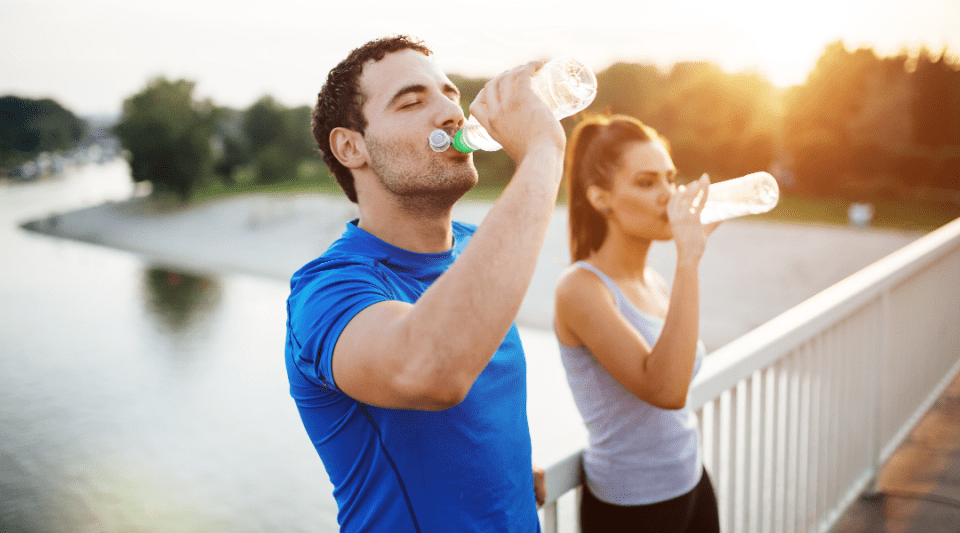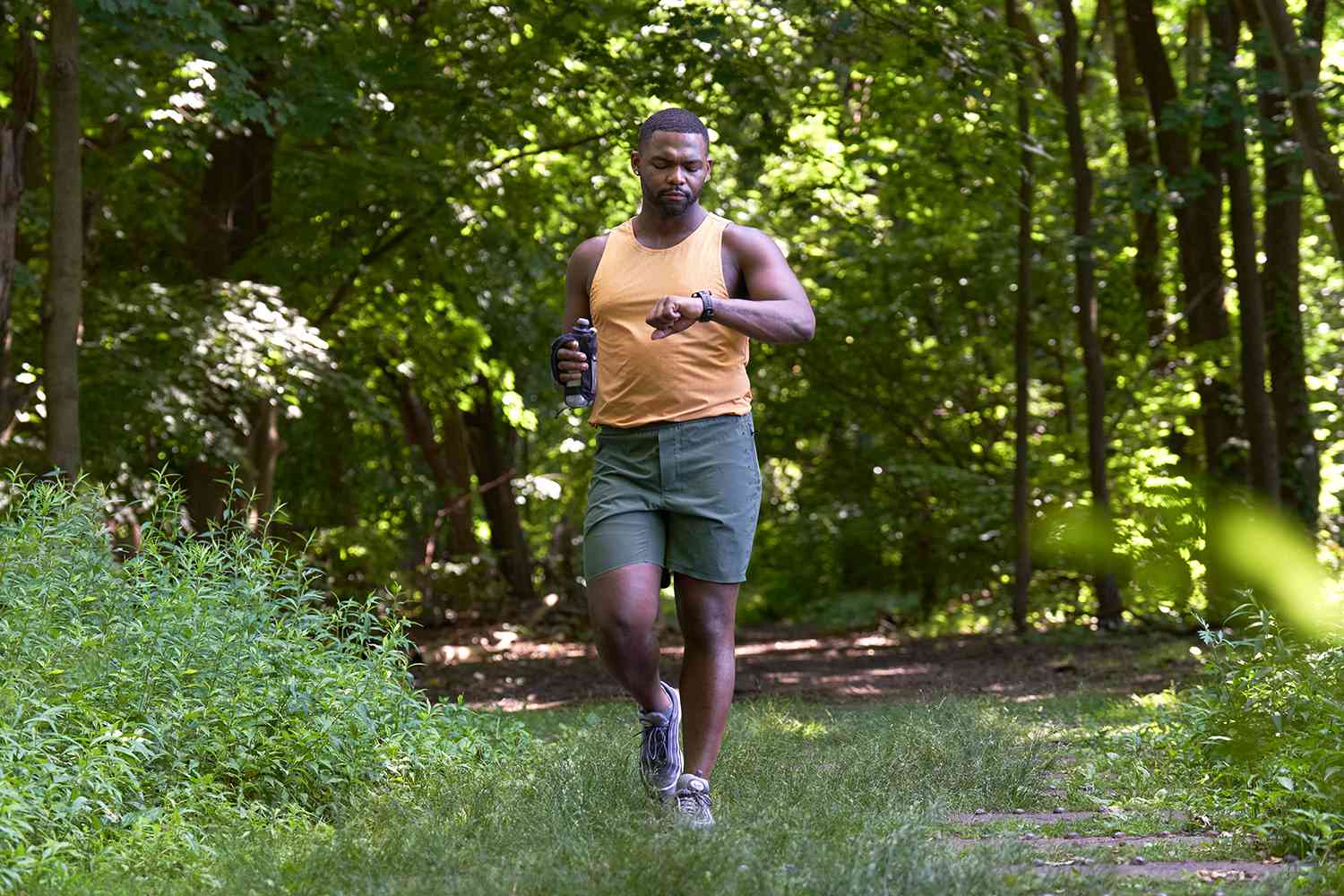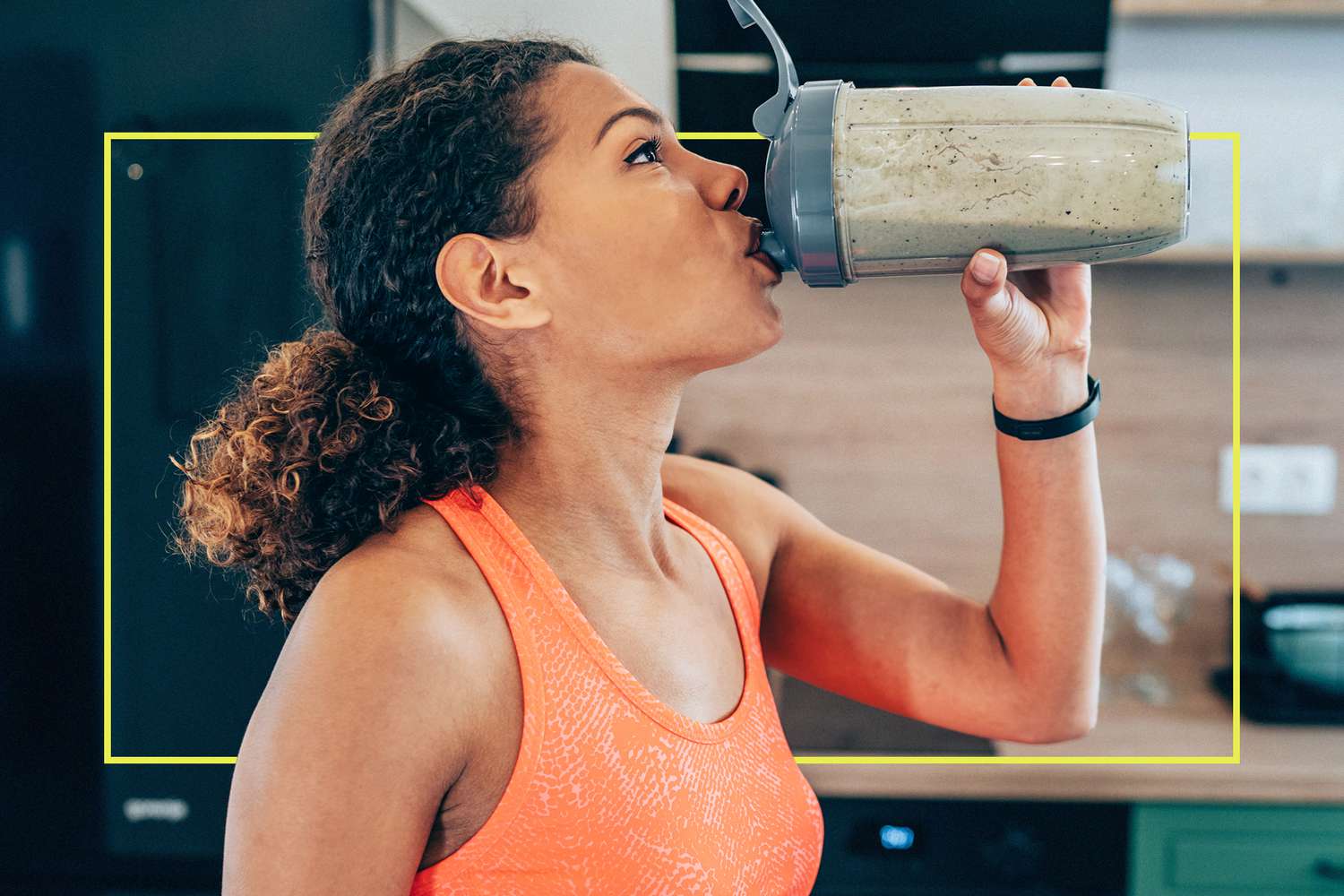As much as 60% of your body is made up of water. And when you work out, you can lose quite a bit.
Drinking water helps the joints and body tissues function, regulates body temperature, and transports nutrients. But some of us don’t drink enough water, according to Nancy Clark, RD, a sports nutritionist and author of Nancy Clark’s Sports Nutrition Guide Book.
Here’s what you should know before picking the perfect beverage to keep you hydrated during your next workout.
Choose the Right Beverage
Sometimes the simplest solution is the best, and that’s true when choosing a workout beverage.
“If you’re an average person, then water after a workout is just fine,” said Clark.
But if your workout is more intense and you spend more than three hours at a time doing it, then Clark recommended chocolate milk.
“[Chocolate milk] has got sodium and calcium, which we lose when we sweat. It’s also got carbs to refuel and give energy, and the protein also helps to repair any damage.”
If milk or water isn’t your thing, sports drinks, coconut water, or other beverages are fine. Don’t worry too much about electrolytes. Clark said food could provide for those lost in sweat.
Consume the Right Amount
There isn’t a set amount of water that you should consume during exercise, said Clark, who advised that you “drink to thirst.”
But there are ways to calculate your sweat rate, which involve weighing yourself before and after you run and doing a few calculations. Clark said that if you lose a quart of sweat in an hour, you should drink about eight ounces of water every 15 minutes.
If you want to skip the math and tend to sweat a lot, four to eight ounces every 15 to 20 minutes during your workout is a good rule of thumb.2
Don’t Drink Too Much
It’s possible to drink too much fluid, although this is uncommon. It’s more of a risk during marathons and triathlons.
Athletes who consume a lot of fluid (even sports drinks) but not enough sodium can develop a potentially life-threatening condition called hyponatremia. Symptoms of hyponatremia include:3
- Nausea or vomiting
- Headache, confusion, or fatigue
- Low blood pressure
- Loss of energy
- Muscle weakness, twitching, or cramps
- Seizures or coma
- Restlessness or bad temper
But really, over-hydration is “rare,” according to Clark, who noted that most people don’t drink enough fluids while working out.
Pack in Some Protein and Carbs
While exercising is good for you, it’s common to incur minor cell or tissue damage after a workout. Proteins can help repair any damage, so Clark recommended rehydrating with a protein-rich drink after an incredibly intense workout.
But it’s not just about protein, said Clark. Because you expend substantial energy when exercising, “you want about three times more carbohydrates than protein,” so Clark recommended flavored milk as a fluid replacement
Know the Risks of Dehydration
Many problems can result from not drinking enough water. Perhaps one of the most common is fatigue.
If you don’t drink enough water, then “your blood gets thicker from lower water content, and your heart has to work harder, which means you get tired,” noted Clark. “A dehydrated person will get fatigued.”
Drink Before and During Exercise
Clark recommended drinking fluids before you even begin to exercise, especially if you’re doing something that requires a lot of stamina.
“You need to start drinking about one and a one-half to two hours before running a marathon,” said Clark.
Also, drinking fluids during a workout is a good idea, too.
“We don’t drink enough during exercise, and that puts you in a hole when you finish, and then you have to rehydrate,” said Clark. “It’s better if you don’t put yourself in that hole in the first place.”
While it might be cumbersome to carry water with you on the run, it’s worth it, according to Clark.



